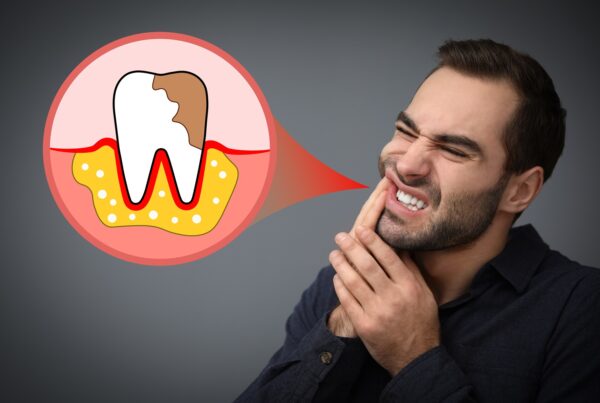In the grand scheme of overall health, oral hygiene often takes a backseat. Yet, a healthy mouth is not just about aesthetics; it’s a cornerstone of well-being. This dental hygiene essay explores the historical significance of oral care, talks about the seven key benefits of maintaining good dental hygiene, and equips people even dental professionals with strategies to emphasize these benefits to their patients.
Dental Hygiene Essay: A Historical Perspective
The concept of dental hygiene has a surprisingly long history. Ancient civilizations like the Egyptians and Babylonians recognized the importance of oral care, using natural remedies like salt, honey, and herbs to clean their teeth. Fast forward to the 18th century, and the invention of the toothbrush marked a turning point. However, it wasn’t until the 20th century, with the rise of dental science and public health initiatives, that oral hygiene became a mainstream concept.
Today, dental hygiene practices are more sophisticated than ever. Advanced toothpastes, flossing techniques, and professional cleanings are readily available. However, despite these advancements, a significant portion of the population still struggles with inadequate oral hygiene routines.
The 7 Pillars of a Healthy Smile: Why Dental Hygiene is Important
As people seeking sparkling smiles, you understand the intricate connection between oral health and overall well-being. Let’s explore the seven key benefits of maintaining good dental hygiene, which you can use to educate all around you:
Prevents Tooth Decay and Gum Disease
The cornerstone of good dental hygiene is preventing cavities and gum disease. Brushing and flossing disrupt plaque buildup, the breeding ground for harmful bacteria. Regular professional cleanings remove stubborn tartar and provide a deeper level of protection.
Dental Hygiene Freshens Breath
Bad breath, or halitosis, can be a significant source of social anxiety. Proper oral hygiene practices, including brushing the tongue, flossing, and using mouthwash, effectively combat bad breath and promote a fresh, confident smile.
Dental Hygiene Improves Overall Health
Research suggests a link between poor oral health and various systemic health problems, including heart disease, diabetes, and even pregnancy complications. Maintaining good dental hygiene can contribute to overall health and well-being.
Dental Hygiene Boosts Confidence
A healthy smile is a beautiful smile. When patients take pride in their oral hygiene, it shows. The confidence boost extends beyond aesthetics, empowering patients to engage socially and professionally with a positive self-image.
Dental Hygiene Reduces Dental Expenses
Regular dental checkups and cleanings are significantly more cost-effective than treating advanced dental problems like cavities, gum disease, and root canals. Encouraging preventative care through good dental hygiene can save your money in the long run.
Dental Hygiene Enhances Taste Perception
A clean mouth allows patients to experience the full spectrum of taste. When taste buds are coated with bacteria and food debris, taste perception can become dulled. Proper oral hygiene ensures you enjoy the full range of flavors in your food.
Dental Hygiene Improves Sleep Quality
Oral health problems like sleep apnea, often linked to poor dental hygiene, can disrupt sleep patterns. Maintaining good oral hygiene can contribute to a better night’s sleep, leading to increased energy and overall well-being.
Beyond the Basics: Habits to Avoid and Professional Solutions to Emphasize
While most patients understand the importance of brushing and flossing, some habits can sabotage their efforts. Here’s how you can educate yourself on practices to avoid with this essay on dental hygiene:
- Sugary Drinks and Snacks: Frequent consumption of sugary beverages and foods creates a breeding ground for bacteria, accelerating tooth decay.
- Smoking and Tobacco Use: Tobacco use not only stains teeth but also weakens the immune system, making patients more susceptible to oral health problems.
- Improper Brushing Technique: Brushing too hard can damage gums and tooth enamel. Educate patients on the proper brushing technique, emphasizing gentle circular motions.
When Professional Care Makes a Difference
While at-home oral hygiene is crucial, professional cleanings and treatments are often necessary for optimal oral health. Here’s how you can emphasize the importance of professional services:
- Scaling and Root Planing: For patients with gum disease, professional scaling and root planing procedures remove deep tartar buildup that cannot be reached with at-home care.
- Fluoride Treatments: Fluoride strengthens tooth enamel and provides additional protection against cavities. Regular professional fluoride treatments can significantly benefit patients with high caries risk.
- Dental Sealants: For children and adults susceptible to cavities, dental sealants provide a protective barrier on the chewing surfaces of teeth, preventing decay.
Conclusion: Gearing up for a Healthy Smile
By educating yourself on the benefits of good dental hygiene and the importance of professional care, you can empower yourself to take charge of your oral health. This dental hygiene essay provides a framework for these conversations, highlighting the significant impact oral hygiene has on overall well-being.
Schedule a Consultation and Take Charge of Your Oral Health
At American Dental Practices in Mumbai and Bangalore, we are committed to partnering with our patients to achieve optimal oral health. Our team of experienced dentists can provide comprehensive dental hygiene education, personalized treatment plans, and professional cleanings to keep your smile healthy and bright.
Schedule a consultation today and take the first step towards a lifetime of healthy smiles! Remember, a strong foundation in dental hygiene is the cornerstone of a healthy mouth and a healthy you.
This dental hygiene essay serves as a springboard for educating and motivating patients towards a lifetime of good oral health. By emphasizing the multifaceted benefits of good dental hygiene and the value of professional care, you can empower yourself to make informed decisions about your oral health.
FAQ’s
How often should I brush and floss my teeth?
It’s recommended to brush your teeth twice a day for two minutes each time, and floss at least once a day.
What type of toothbrush is best?
A soft-bristled toothbrush is ideal to avoid damaging gums. Look for one with a comfortable grip and a head size that fits your mouth.
Are electric toothbrushes more effective?
Both electric and manual toothbrushes can be effective when used properly. Electric toothbrushes can be helpful for some patients who struggle with proper brushing technique.
What toothpaste should I use?
Choose a toothpaste containing fluoride for optimal cavity protection. If you have specific concerns, like gum sensitivity or teeth whitening, consult your dentist for a personalized recommendation.
How often should I schedule dental checkups and cleanings?
Most patients benefit from biannual dental checkups and cleanings. However, your dentist may recommend more frequent visits depending on your individual needs.
Learn How to Maintain Dental Hygiene by Professionals, Book Today!
Best Results Guaranteed! Book now.







